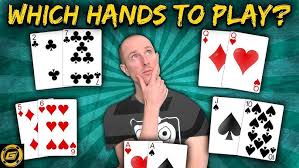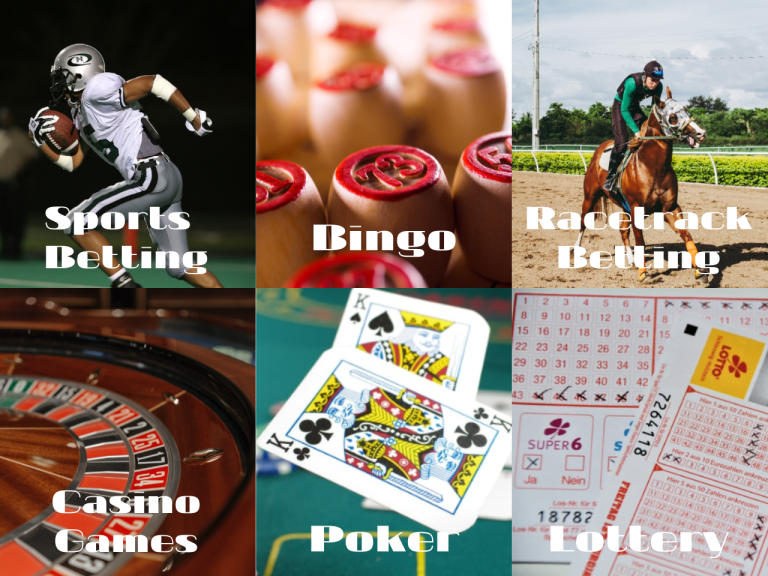For centuries, the concept of luck has been a central part of gambling culture. From the roulette wheel to slot machines and poker tables, luck plays a pivotal role in determining whether a gambler will walk away a winner or a loser. Yet, as anyone who’s spent time in a casino or online gaming platform knows, the idea of improving one’s luck is a topic of much debate. Can luck truly be improved, or is it all just a matter of chance? In 2024, with the rise of online casinos and sports betting, the search for strategies that might sway fortune in the gambler’s favor continues to captivate players worldwide.
In this article, we’ll explore the question of whether luck can be influenced, uncover the strategies gamblers use to try and “improve” their luck, and take a closer look at the psychology behind these approaches.
The Nature of Luck in Gambling: Is It Really Random?
At its core, gambling is about chance. Games like slots, roulette, bingo, and lotteries are primarily driven by random outcomes. Whether it’s a spin of the wheel, a roll of the dice, or a card being drawn, luck plays a decisive role in determining the outcome.
However, even in games of chance, some players believe they can influence the results or at least improve their odds through various strategies. In fact, many gamblers swear by superstitions, rituals, and habits that they believe help them attract good luck. This combination of psychology and superstition has led to the development of several strategies that people claim can boost their chances of winning, even if they cannot scientifically alter the luck factor itself.
The Psychology Behind Gambling and Luck
The belief in luck is often tied to cognitive biases and psychological factors that influence decision-making. Many gamblers believe they can control or influence randomness, which is why they adopt rituals, betting systems, or other strategies to “improve” their luck. These behaviors provide a sense of control in an inherently uncontrollable situation.
For instance, gamblers’ fallacy is a common cognitive bias where players believe that past outcomes influence future results, even when the events are entirely random. For example, in roulette, a player might believe that after a long streak of black numbers, red is “due” to come up. This leads them to make bets based on this flawed logic, even though the game is not influenced by previous spins.
Similarly, confirmation bias causes gamblers to focus on instances where their strategies or superstitions “worked,” ignoring the many times these methods failed. This reinforces the belief that their luck can indeed be improved.
Can Luck Be Improved? Strategies and Superstitions Gamblers Swear By
While there’s no scientific evidence to support the idea that luck can be directly controlled, many gamblers believe in methods that they claim increase their odds of winning. Here are some of the most popular strategies and superstitions that gamblers swear by in 2024.
1. The Power of Positive Thinking
One of the most common psychological strategies employed by gamblers is the power of positive thinking. The idea is simple: maintaining an optimistic and confident attitude can help manifest good luck. Many gamblers believe that if they approach the game with a positive mindset, they will attract good fortune. Positive energy is thought to improve decision-making, help players stay calm during high-pressure situations, and foster a sense of mental clarity—all of which may enhance their performance.
In 2024, this concept is especially popular in online poker and sports betting, where mental resilience plays a crucial role in making informed decisions. Gamblers might remind themselves that each bet, spin, or hand is independent of the previous one, allowing them to stay grounded and avoid emotional decisions that could affect their luck.
2. Superstitions and Rituals
Superstitions are an integral part of gambling culture, and many players swear that performing specific rituals can bring them luck. From lucky charms to pre-game routines, these actions help create a sense of control in an unpredictable environment.
Some common gambling superstitions include:
- Lucky charms and objects: Some gamblers believe that carrying certain items—such as a lucky coin, a four-leaf clover, or even a specific article of clothing—can influence the outcome of a game. These items are thought to provide a symbolic link to good fortune.
- Hand movements: In games like poker, some players believe that making certain gestures, such as tapping the table or knocking on wood, can ward off bad luck and encourage good fortune.
- Choosing lucky numbers: In games like roulette or lottery, players may choose numbers they consider lucky, whether it’s their birthdate, a family member’s number, or numbers that have brought them success in the past.
3. The Hot and Cold Slot Machine Myth
One of the most popular strategies used by online slot players is the belief in “hot” and “cold” machines. Some gamblers believe that machines go through hot streaks (where payouts are frequent) and cold streaks (where payouts are sparse). Based on this myth, players may look for a machine that has recently paid out a large jackpot or one they believe is “due” for a win.
Fact: Slot machines are powered by Random Number Generators (RNGs), which ensure that each spin is independent and random. There’s no such thing as a “hot” or “cold” machine, but players often try to apply patterns to their betting behavior.
4. The Martingale Betting System
One of the most widely used betting strategies among gamblers is the Martingale system, particularly in games with even-money bets such as roulette, blackjack, or baccarat. The Martingale system involves doubling your bet after every loss, with the idea that eventually, you will win and recover all your losses, plus a profit equal to your original bet.
For example, if you start with a $10 bet and lose, you double the next bet to $20. If you lose again, you double it again to $40, and so on. The idea is that once you win, the profit will cover all previous losses.
Caveat: While the Martingale system can work in theory, it’s not a foolproof strategy. It requires an infinite bankroll to continue doubling bets after multiple losses, and even then, there’s always a risk that you’ll hit a losing streak that wipes out your entire stake.
5. Game Selection and Skill-Based Strategies
In games that involve an element of skill, such as poker or blackjack, many players focus on improving their game strategy rather than relying on luck alone. For instance, poker players study opponents, develop bluffing techniques, and refine their decision-making process to gain an edge.
In blackjack, players might use basic strategy charts to determine when to hit, stand, double down, or split pairs, optimizing their odds of winning over the long run. While these strategies don’t eliminate luck, they can tilt the odds slightly in the player’s favor by reducing the house edge.
6. Managing Your Bankroll
Perhaps the most practical “strategy” for improving your luck is managing your bankroll wisely. Players who bet within their means, set limits on losses, and know when to walk away are often able to preserve their capital for future games. Responsible gambling reduces stress and helps players maintain a clear mind, which may indirectly improve their chances of making better decisions and, in turn, attract better luck.
The Reality: Luck Is Still a Game of Chance
Despite all these strategies and superstitions, the truth is that luck cannot be controlled or improved. Gambling outcomes are primarily determined by chance, and while there are ways to improve decision-making in skill-based games, there’s no method that guarantees consistent wins.
The strategies mentioned above may help players feel more in control of their experience, but they do not alter the underlying randomness of gambling games. In fact, many of these strategies are psychological tools that help gamblers feel more comfortable, which can enhance their enjoyment and reduce anxiety while playing.
Conclusion: Embrace the Fun, but Stay Grounded
While gamblers may swear by certain strategies to improve their luck, it’s important to approach these methods with a sense of enjoyment and a healthy perspective. Gambling is inherently unpredictable, and no strategy can overcome the fundamental role of chance. By practicing good bankroll management, focusing on skill-based games, and understanding that luck is always a fickle factor, players can have more fun and make smarter decisions.
Ultimately, luck will always be a mystery—something we can’t predict or control. But embracing the uncertainty and enjoying the experience is what makes gambling exciting. If you’re going to bet, do it responsibly and remember that in the end, luck is as much about having a good time as it is about winning.
Join KKClub today for exclusive casino games and big wins – your lucky streak starts here!



